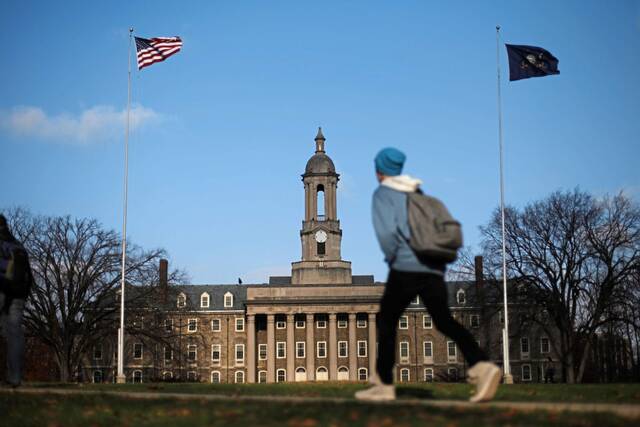Editorial: Penn State should realize keeping secrets doesn't work
Come on, Penn State. Didn’t you learn anything?
The backlash felt by the university in the aftermath of the Jerry Sandusky child sex abuse scandal was not because an employee committed a crime. That can happen to any employer — public, private, parochial — and it has. A business or organization does what it can to hire good people and prevent problems, but nothing is foolproof.
The reason Penn State was pilloried was because of the secrecy.
Sandusky’s 2011 arrest brought to light reports made to those in power at the time. Football coach Joe Paterno, university President Graham Spanier, Athletic Director Tim Curley, Vice President Gary Schultz. All were fired. Paterno died in 2012 before Sandusky’s conviction. The others served jail and probation sentences.
For many, the university is indelibly stained by the incident — and specifically its handling before the crimes became public. While Penn State has stepped up, made changes and created the Child Maltreatment Solutions Network to combat what happened to Sandusky’s victims, it doesn’t change the fact that it always will follow the school’s name like a shadow.
So why invite more criticism for hiding things?
Penn State now is involved in a new sex scandal. This time, it’s about a student athlete who was the subject of sextortion — that’s a relatively new term for blackmailing someone into providing sexual pictures or videos. The unnamed student did that, delivering the sexual material last fall.
But since an investigation began, the university went to court, petitioning for search warrants in the case to be sealed in an emergency ex parte motion. That happened, but they were unsealed after a motion by Spotlight PA and other media outlets.
Centre County District Attorney Bernie Cantorna closed his investigation in June at the request of the athletes. The case was then sealed at Penn State’s request. Cantorna appealed, and it subsequently was unsealed.
Experts have found the university intervention unusual.
“If (the students) didn’t ask for it, what’s (the university’s) interest to protecting privacy when the students may not have an interest in their own privacy?” said David Rudovsky, a senior fellow at the University of Pennsylvania Law School, in a Spotlight PA story.
Penn State should have learned in 2011 — before that, actually — that keeping things covered up is never helpful. In fact, it makes things worse.
Remove the ads from your TribLIVE reading experience but still support the journalists who create the content with TribLIVE Ad-Free.

